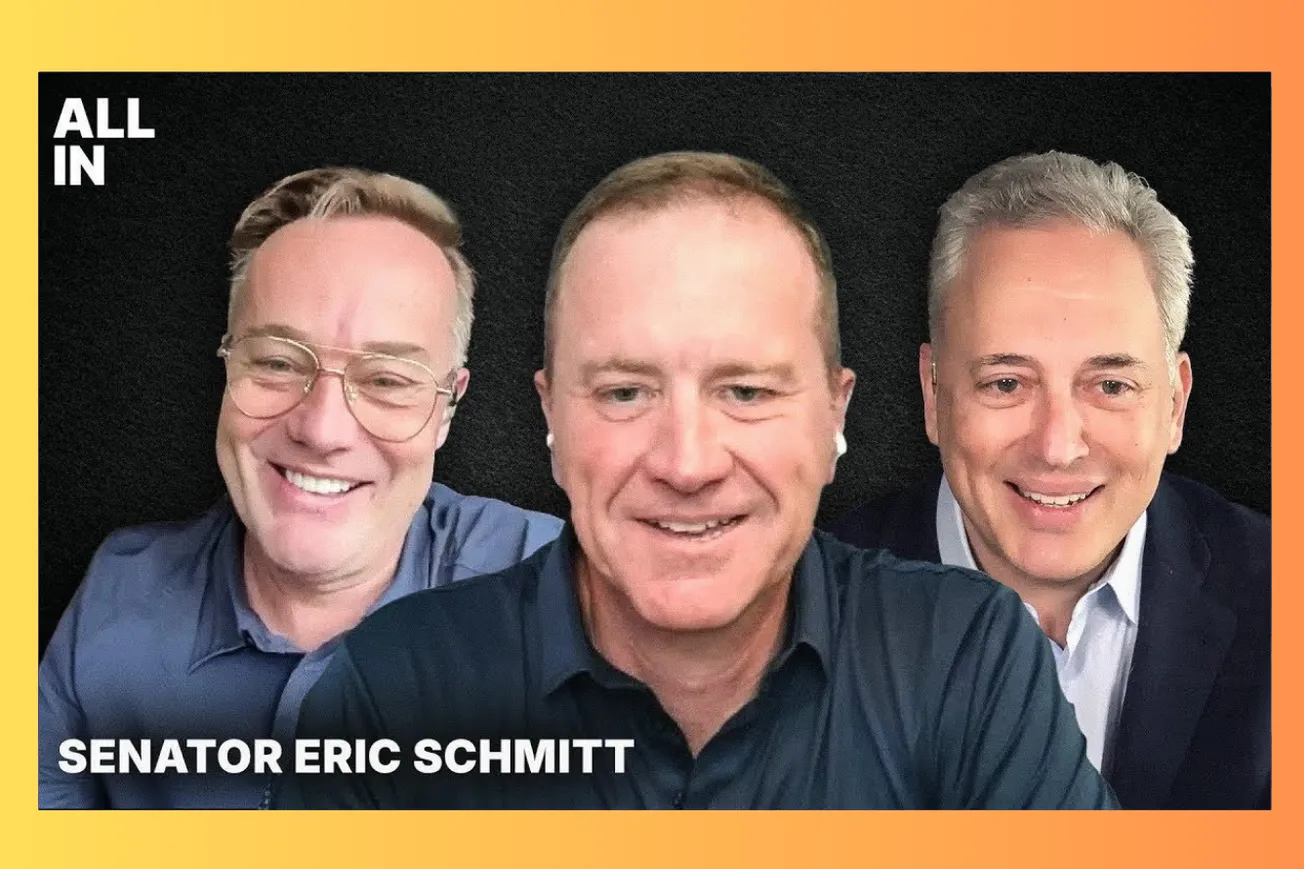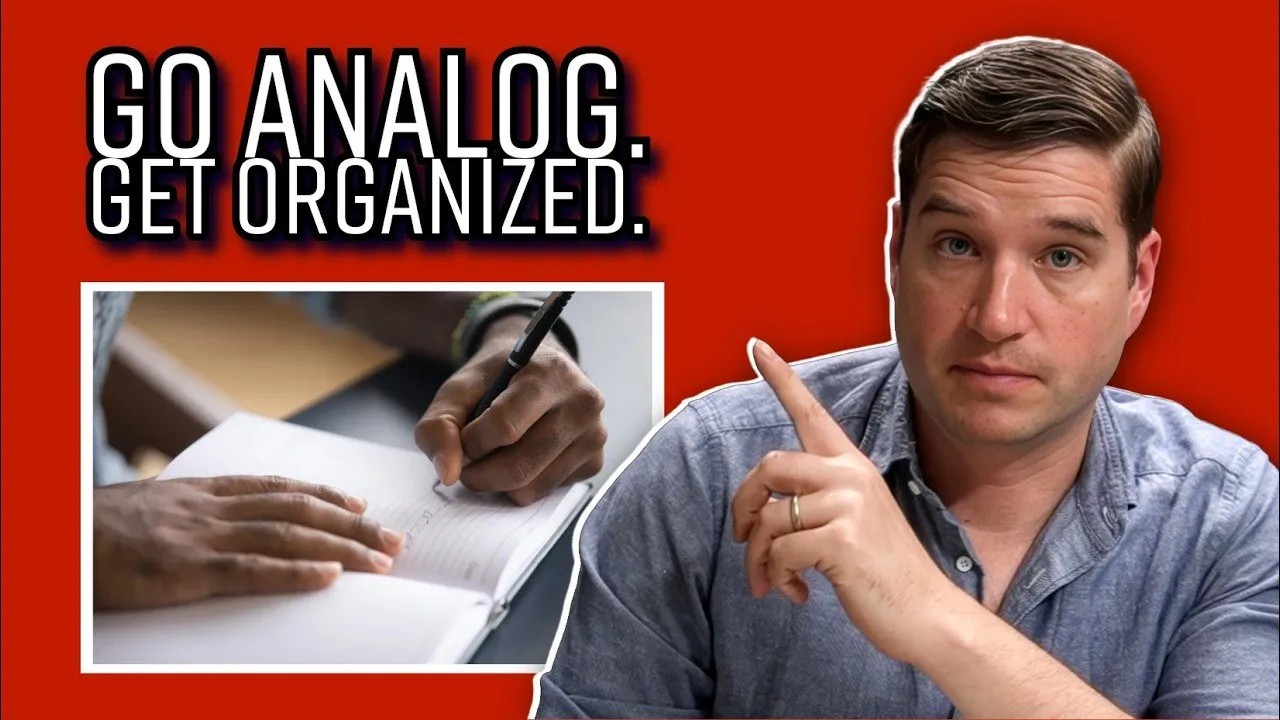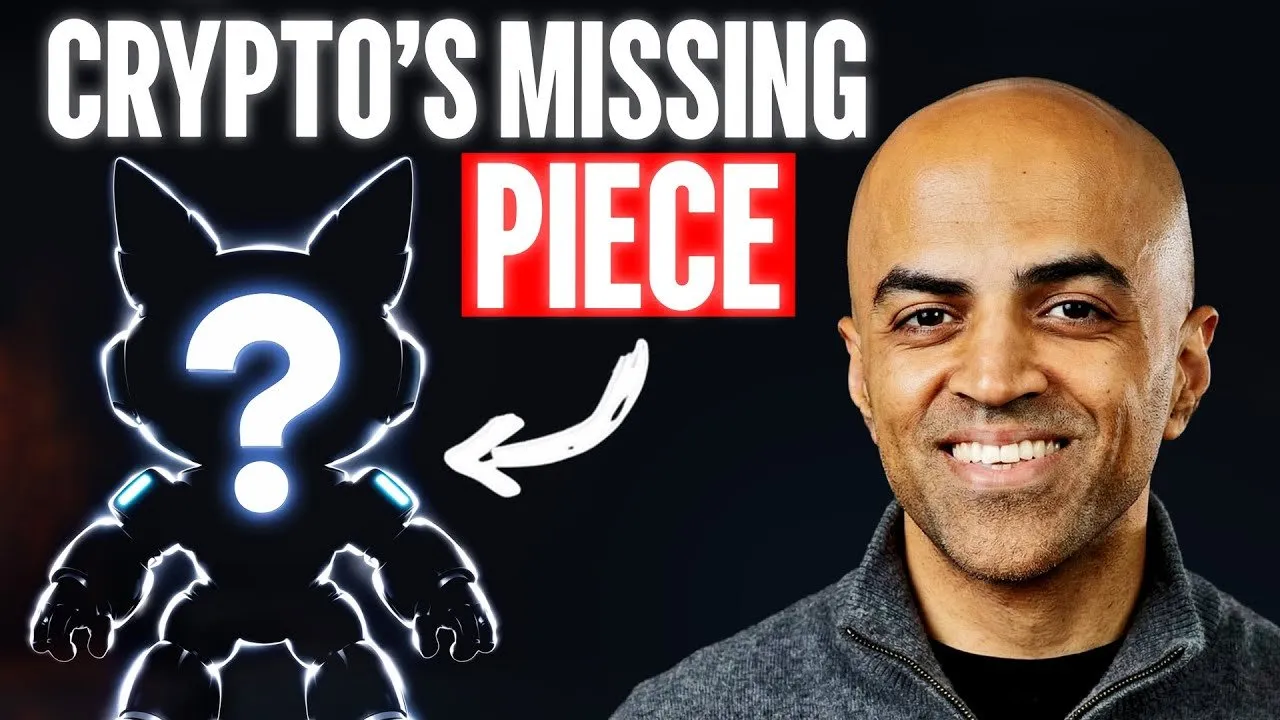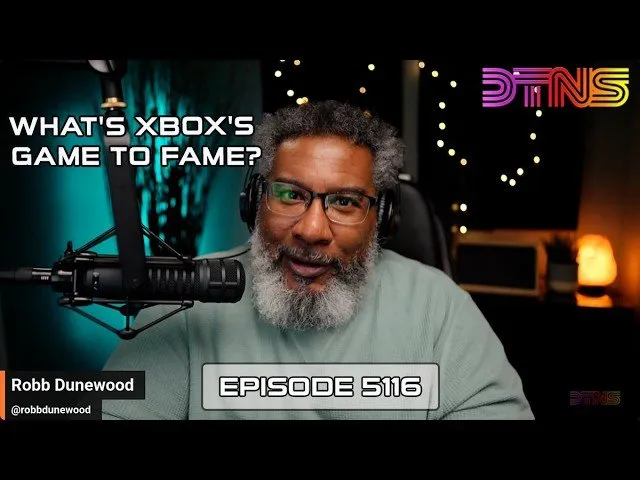Table of Contents
Missouri Senator Eric Schmitt reveals unprecedented government coordination with tech platforms to suppress American speech through his groundbreaking Biden v. Missouri lawsuit and extensive discovery process.
Senator Eric Schmitt's legal investigation uncovered a vast government censorship apparatus involving multiple federal agencies working with social media platforms to silence dissenting voices on COVID policies, election integrity, and other politically sensitive topics.
Key Takeaways
- Biden v. Missouri lawsuit revealed extensive government coordination with social media platforms to suppress American speech across multiple topics
- Discovery process uncovered tens of thousands of documents showing special portals between government agencies and big tech companies for content flagging
- Federal agencies including FBI, CDC, and CISA systematically worked to pressure social media platforms into censoring specific content and viewpoints
- The Hunter Biden laptop story suppression involved months of FBI pre-bunking efforts despite knowing the laptop was authentic since 2019
- Government officials threatened tech companies with regulatory consequences and loss of Section 230 protections to ensure compliance with censorship requests
- Multiple agencies created a "Leviathan" censorship enterprise that operated beyond individual phone calls to become systematic suppression of dissenting voices
- The case established legal precedent that government cannot outsource First Amendment violations to private companies through coercion and threats
- Discovery revealed government officials used personal communications and "hacker speak" to evade Freedom of Information Act requests
Timeline Overview
Note: Specific timestamps not available in source material. Timeline based on interview flow and content progression.
- Opening Discussion — Introduction and Free Speech Philosophy: Senator Schmitt introduces his book "The Last Line of Defense" and discusses the broader context of censorship during 2020-2024 period
- Legal Strategy Deep Dive — Biden v. Missouri Case Origins: Decision to pursue discovery rather than immediate injunctive relief, strategic approach to uncovering government-tech coordination mechanisms
- Discovery Revelations — Uncovering the Censorship Apparatus: Detailed findings from tens of thousands of documents, depositions of Anthony Fauci and FBI officials, evidence of systematic coordination
- Hunter Biden Case Study — Pre-bunking and Suppression Tactics: FBI knowledge of laptop authenticity since 2019, Elvis Chan's role in conditioning social media platforms, tabletop exercises preparing for suppression
- Agency Coordination Analysis — The Multi-Agency "Leviathan": CDC phrase flagging, CISA election integrity operations, systematic pressure campaigns across multiple government departments
- Section 230 and Platform Dynamics — Legal Framework and Coercion: Discussion of platform protections, government threats, and the blurred line between information sharing and coercive censorship
- Broader Political Context — Russian Disinformation Narratives: Hamilton 68 dashboard fraud, Steel Dossier origins, manufactured intelligence assessments and their political consequences
- Foreign Policy Implications — Ukraine Conflict and Diplomacy: Current Russia-Ukraine negotiations, NATO burden sharing, American foreign policy realism versus interventionism
Legal Discovery: Exposing the Government-Tech Censorship Pipeline
- The Biden v. Missouri lawsuit employed a strategic approach prioritizing discovery over immediate injunctive relief, recognizing that evidence gathering would be crucial for establishing the scope of government censorship operations
- Discovery revealed "special portals" between government agencies and social media platforms that enabled systematic flagging and removal of content deemed problematic by federal officials across multiple policy areas
- Tens of thousands of documents, emails, and text messages exposed coordinated efforts between agencies including FBI, CDC, CISA, and NIH to suppress American speech on COVID policies, election integrity, and other sensitive topics
- Government officials explicitly threatened social media companies with regulatory consequences, loss of Section 230 protections, and other punitive measures if they failed to comply with content removal requests
- The lawsuit established that government cannot constitutionally outsource First Amendment violations to private companies through coercion, jawboning, and regulatory threats that create de facto censorship
- Depositions of key figures including Anthony Fauci revealed systematic efforts to undermine scientists and doctors who questioned official COVID narratives, including attempts to destroy the careers of dissenting medical professionals
The legal framework demonstrated that while government agencies claimed to be merely "informing" platforms about problematic content, the reality involved systematic coercion backed by regulatory threats that crossed constitutional boundaries.
The Hunter Biden Laptop Suppression Campaign
- FBI possessed Hunter Biden's laptop since November 2019 and knew it was authentic, yet initiated a months-long campaign to condition social media platforms to suppress eventual revelations about its contents
- Elvis Chan, FBI agent in charge of Northern California operations, conducted weekly meetings with social media trust and safety teams, representing what internal communications described as "the belly button" between intelligence community and tech platforms
- The FBI employed approximately 80 agents submitting takedown requests to Twitter and other social networks, demonstrating the scale of the systematic censorship operation across multiple platforms and content types
- Government agencies conducted "tabletop exercises" with social media executives, including scenarios where Russians would conduct an "oppo dump" on Hunter Biden two weeks before the election, conditioning platforms to censor such stories
- James Baker, former FBI general counsel who became Twitter's general counsel, advocated internally for censoring the Hunter Biden laptop story despite his knowledge from FBI service that the laptop was authentic
- The suppression occurred ten days before the 2020 election when the story could have had maximum impact on voter decision-making, raising questions about election interference through censorship
Social media platforms later acknowledged they censored the story based on FBI guidance, with Mark Zuckerberg publicly stating on Joe Rogan's podcast that Facebook suppressed the story because federal authorities had warned them about potential Russian disinformation.
Multi-Agency Censorship Coordination: The "Leviathan" System
- The censorship enterprise involved systematic coordination across multiple federal agencies including FBI, CDC, CISA, NIH, and White House communications staff, creating what Senator Schmitt termed a "Leviathan" of suppression
- CDC officials specifically requested social media platforms to flag and remove content containing certain words and phrases related to COVID policies, vaccines, and public health measures that contradicted official narratives
- CISA, originally created to protect infrastructure from cyber attacks, expanded its mission under the guise of combating "Russian disinformation" to include domestic election integrity and eventually COVID-related content suppression
- The Cybersecurity and Infrastructure Security Agency worked with Stanford University and University of Washington to develop systematic flagging operations that could be rapidly deployed against American citizens expressing dissenting views
- Government officials used personal email addresses and encrypted communications to evade Freedom of Information Act requests, with CDC personnel allegedly being taught to use "hacker speak" to avoid public disclosure requirements
- White House communications staff, including deputy director Rob Flaherty, sent threatening messages to social media executives stating that "from the highest levels of the White House" they needed to increase censorship efforts
The coordination involved not just individual requests but systematic alteration of social media platforms' terms of service to align with government desired outcomes across multiple policy areas.
Constitutional and Legal Implications of Government Censorship
- The First Amendment requires government actions affecting speech to be content-neutral, but the discovered coordination systematically targeted specific viewpoints and political perspectives rather than applying neutral standards
- Section 230 protections were designed for platforms acting as neutral conduits rather than publishers making editorial decisions, but government coordination transformed platforms into state actors making content decisions
- The legal doctrine prohibiting government from outsourcing constitutional violations to private entities was central to the Biden v. Missouri case, establishing that coercion and threats make private censorship into state action
- Government threats regarding Section 230 protections, antitrust enforcement, and regulatory scrutiny created a coercive environment where social media companies faced significant business risks for refusing censorship requests
- The systematic nature of the censorship enterprise distinguished it from legitimate government information sharing, creating a coordinated suppression system that violated First Amendment principles
- Legal accountability remains limited, with Senator Schmitt noting that most involved government officials have faced no consequences despite their roles in systematic constitutional violations
The case established important precedent about the boundaries between legitimate government communication and unconstitutional coercion of private platforms to suppress protected speech.
Information Warfare and Narrative Control Operations
- Hamilton 68, a supposed Russian disinformation tracking system created by former FBI official Clint Watts, was revealed through Twitter Files to be tracking regular American accounts rather than actual Russian operations
- The dashboard became the basis for thousands of media stories claiming Russian interference in American politics, but Twitter's internal analysis found the tracked accounts were "just regular accounts" including conservatives and Canadians
- The Steel Dossier and broader Russian interference narratives were systematically used to justify censorship of any content that contradicted preferred political narratives, with dissenting views labeled as "Russian disinformation"
- Intelligence community assessments included discredited information despite analysts concluding it lacked credibility, with officials like John Brennan reportedly overruling subordinates who determined the Steel Dossier was unreliable
- The "Russian disinformation" label became a systematic tool for suppressing inconvenient information and political opposition, extending far beyond actual foreign interference concerns to domestic political speech
- Government agencies leveraged manufactured foreign threat narratives to justify domestic censorship operations that would otherwise be clearly unconstitutional under First Amendment doctrine
These operations demonstrated how national security frameworks designed to counter genuine foreign threats were weaponized against domestic political opposition and dissenting scientific voices.
Contemporary Political and Foreign Policy Debates
- Senator Schmitt advocates for "American realism" in foreign policy, arguing that permanent Washington's "Wilsonian adventurism" has consistently failed and requires fundamental reassessment of international commitments
- The Russia-Ukraine conflict represents a test case for whether diplomatic engagement can resolve territorial disputes without indefinite American military and financial commitment to overseas conflicts
- European NATO allies' unwillingness to spend proportionally on defense while demanding American support creates unsustainable burden-sharing arrangements that require renegotiation
- Polling data from Ukraine shows declining support for continued war among Ukrainian citizens, with support dropping from 60-70% to 24%, suggesting popular appetite for negotiated settlement
- The United States faces strategic necessity to pivot resources toward Indo-Pacific competition with China while European allies assume greater responsibility for regional security challenges
- Congressional oversight and accountability for previous foreign policy failures, including Afghanistan withdrawal and inadequate preparation for great power competition, remains incomplete
Senator Schmitt argues that successful diplomacy requires engaging with adversaries while maintaining clear American interests and realistic assessments of achievable outcomes versus indefinite commitments.
Strategic Analysis: Censorship Operations and Democratic Accountability
The Systematic Nature of Government Censorship The Biden v. Missouri discovery revealed censorship operations that extended far beyond individual agency actions or isolated incidents. The coordination involved multiple federal departments working with academic institutions and NGOs to create what amounted to a parallel regulatory system for speech. This systematic approach demonstrated sophisticated understanding of how to circumvent constitutional restrictions by using private entities as enforcement mechanisms while maintaining plausible deniability about government involvement.
Legal Strategy and Discovery Innovation Senator Schmitt's decision to prioritize discovery over immediate injunctive relief proved strategically crucial for exposing the scope of censorship operations. Traditional civil rights litigation often seeks immediate court orders stopping alleged violations, but this case recognized that evidence gathering was necessary to establish the systematic nature of the constitutional violations. The approach enabled comprehensive documentation that would have been impossible through other legal mechanisms.
Technology Platform Vulnerability to Government Pressure The case demonstrated how regulatory uncertainty and concentrated market power create vulnerability to government coercion. Section 230 protections, antitrust scrutiny, and other regulatory frameworks provide multiple pressure points that government officials can exploit to influence private platform decisions. This dynamic shows how constitutional rights can be undermined through regulatory threats rather than direct government action.
Information Environment and Democratic Deliberation The suppression of the Hunter Biden laptop story ten days before the 2020 election illustrates how censorship operations can directly impact democratic processes. Regardless of one's political preferences, the systematic suppression of newsworthy information during election periods raises fundamental questions about who controls the information environment that voters rely on for decision-making.
Institutional Trust and Accountability Deficits The lack of accountability for officials involved in censorship operations contributes to declining institutional trust and political polarization. When government officials systematically violate constitutional rights without consequences, it undermines the rule of law and encourages further institutional weaponization across political transitions.
Conclusion
Senator Eric Schmitt's Biden v. Missouri lawsuit exposed a sophisticated government censorship apparatus that coordinated across multiple federal agencies to suppress American speech on COVID policies, election integrity, and other politically sensitive topics. The extensive discovery process revealed tens of thousands of documents showing systematic coordination between government officials and social media platforms, including special portals for content flagging, weekly meetings between FBI agents and trust and safety teams, and explicit threats regarding regulatory consequences for non-compliance.
The case established important legal precedent that government cannot outsource First Amendment violations to private companies through coercion and regulatory pressure, while demonstrating how national security frameworks can be weaponized against domestic political opposition. The systematic nature of these operations, involving agencies from CDC to CISA working with academic institutions and NGOs, created what Senator Schmitt termed a "Leviathan" of censorship that went far beyond individual requests to become institutionalized suppression of dissenting viewpoints across multiple policy areas.
Practical Implications
For Citizens and Civil Rights Organizations:
- Document government communications with social media platforms through FOIA requests and litigation discovery processes
- Support legal challenges to government censorship operations through organizations pursuing First Amendment litigation
- Understand that systematic censorship often involves coordination across multiple agencies rather than individual bad actors
- Recognize that regulatory pressure and coercion can be as effective as direct censorship in suppressing protected speech
For Technology Platforms:
- Establish clear policies distinguishing between legitimate government information sharing and coercive censorship requests
- Document government pressure campaigns to maintain evidence of coercive behavior that violates First Amendment principles
- Consider the long-term costs of compliance with systematic censorship requests versus short-term regulatory risks
- Implement transparency measures that allow public scrutiny of government requests for content moderation actions
For Policymakers and Legal Professionals:
- Strengthen oversight mechanisms for government communications with social media platforms across all federal agencies
- Clarify the boundaries between legitimate counter-disinformation efforts and unconstitutional censorship operations
- Reform Section 230 frameworks to address government coercion while preserving platform ability to moderate genuinely harmful content
- Establish accountability mechanisms for government officials who systematically violate First Amendment rights through private intermediaries
For Media and Information Environment:
- Investigate the role of NGOs and academic institutions in legitimizing government censorship operations
- Examine how national security frameworks are expanded to justify domestic speech suppression
- Report on the systematic nature of censorship operations rather than treating individual incidents as isolated events
- Maintain skepticism toward government claims about disinformation that may be used to justify legitimate speech suppression
The Biden v. Missouri case demonstrates that protecting First Amendment rights in the digital age requires understanding how government censorship operations have evolved beyond direct suppression to include sophisticated coordination with private platforms, regulatory coercion, and systematic narrative control across multiple institutions and policy areas.





